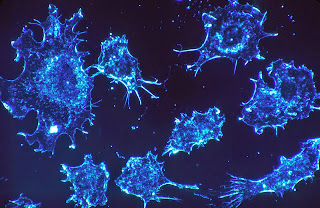
Prostate Cancer Causes
As in the case of BPH, we know the causes although prostat cancer is associated with age (over 45-50 years) and hormonal factors not yet ben determined
How To Diagnose Prostat Cancer
The current key for diagnosis are the rectal and the PSA (specific antigen), a value that can be obtained in a simple blood test. When the PSA is elevated above 10 ng/ml increases dramatically the possibility of CP. prostate biopsy allows to obtain small pieces of prostate for microscopic observation and is objectively to diagnose. The biopsy allows more, to see the degree of aggressiveness of the tumor cells (scale of Gleason). Other tests such as ultrasound, the TAC, the MRI and the MRI are only necessary in special cases.
What Is The Prognosis
Like all cancers, the prognosis depends on the precocity in the diagnosis. The later, larger, more likely to spread beyond the prostate and worse prognosis. The prostat cancer of small size, with PSA and Gleason bass tend to have high rates of healing and survival. The prostat cancer of thick size (playable in rectal), PSA and Gleason senior are worse prognosis. The prostat cancer with metastasis are the worst prognosis, while survival can be quite long. The prognosis in elderly patients is subject to their concomitant diseases and his general State of health, and may be wise in many cases no treatment since the prostat cancer in advanced ages can move very slowly and does not mean a danger for the patient.
The Treatment For Prostat Cancer
If the cancer is confined to the prostate treatment is surgical with a procedure called radical prostatectomy (RP), which can be done via open, laparoscopy or robotic surgery. Robotics is the one that gets the best functional results for the patient (conservation of sexual power and control of urine). Radiotherapy is a treatment comparable in effectiveness to surgery, although with different tracking techniques and connotations to that. Cryotherapy and radiotherapy-interstitial are appropriate for selected cases of illness very localized. When the disease has spread outside of the prostate can be he evades their question with PR or radiotherapy decreases dramatically so, as a rule, are not given these treatments and it is necessary to resort to other alternatives such as the hormonal treatment. When the disease progresses after radical treatment or the disease is already advanced at the time of diagnosis (ganglia or metastasis) hormonal treatment applies, complete form (castration). In special cases are given special schemes of hormonotherapy and/or chemotherapy.
How To Prevent Prostat Cancer
There is no clear evidence that prostat cancer can be prevented though there are some essays that are pointing towards the use of drugs such as 5alfa-reductase inhibitors. A healthy diet, including components such as selenium and vitamin E may help prevent prostate disease, although not conclusive data exists on this topic. A good approach to prevention is early diagnosis, i.e. find the disease when it is still very small and curable. This is achieved in accordance with annual controls with the urologist from the age of 40 years (only men) with rectal and determination of PSA (blood test). The PSA is a very sensitive marker for the presence of prostat cancer even in very early stages.
No comments:
Post a Comment